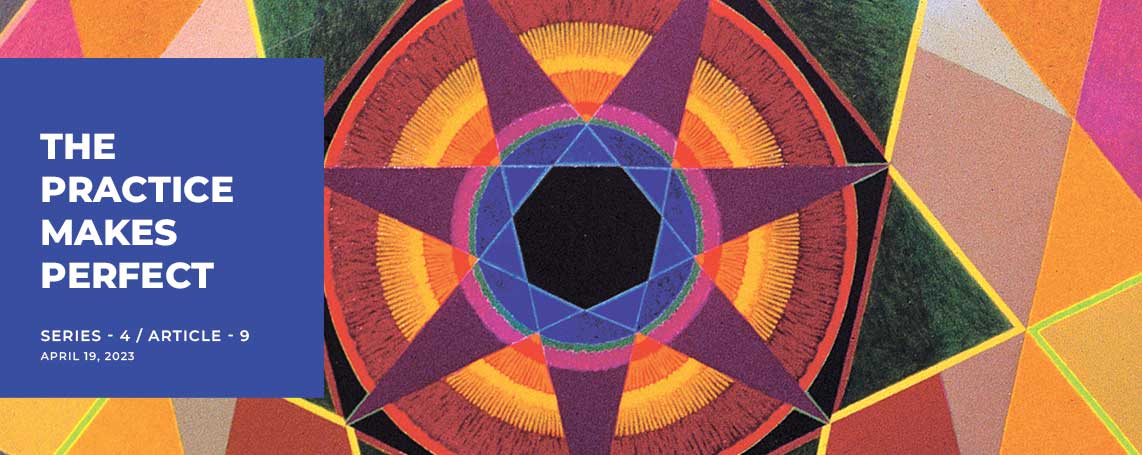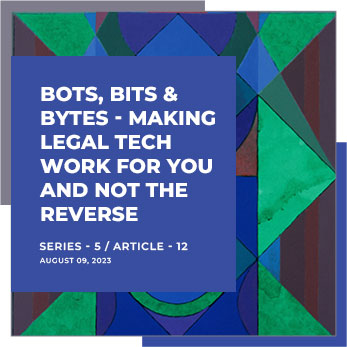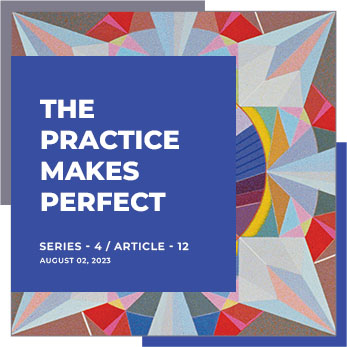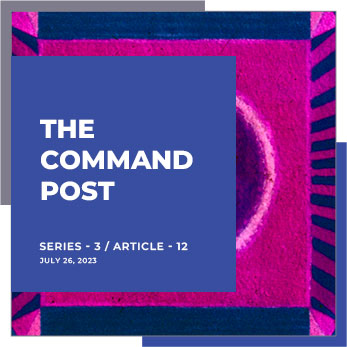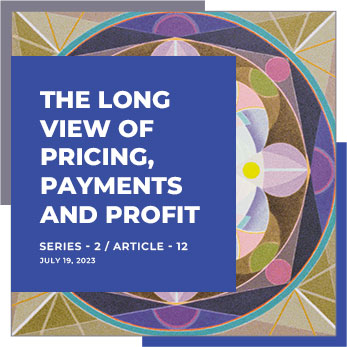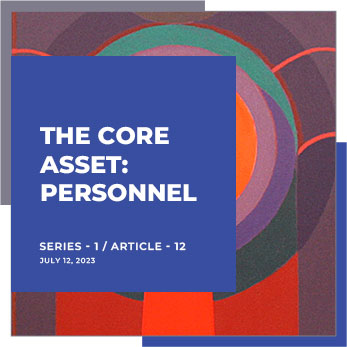“If you’re letting the computer take over for you, like pulling a lever on a slot machine, then it’s public domain really, anyone could take that output. You don’t have intellectual property rights to it.”
When was the last time you had a client who was actually an algorithm? In 2019 an American scientist applied for a copyright for an AI-generated picture on behalf of an algorithm and was turned down by the United States Copyright Office (USCO). In February 2022, the Review Board of the USCO considered the applicant’s second request for reconsideration and affirmed the Registration Program’s refusal to register the AI artwork.
The reason? Apparently, the AI-created image didn’t include an element of ‘human authorship’, a requisite element for copyright protection. Currently, before the federal court in Washington D.C. are cross-motions for summary judgment in the applicant’s further appeal against the Register of Copyrights. Meanwhile, other voices (of the human kind) are weighing in on the debate.
Text to Art
AI artwork is created by way of text instructions being given to an AI program which then generates its own artwork. The human input is rather limited due to the fact that the AI program can create the artwork even from a one-word prompt such as ‘house’ or something slightly more descriptive such as ‘house with rose garden.’ Nightcafe, a well-known AI artwork generator, allows users to modify and repeatedly edit the initial artwork that is created by the user’s phrase. Yet, according to the USCO’s Register of Copyrights, the author of the work so-produced is the algorithm, a position generally not in dispute.
Advocate for an Algorithm
Dr. Stephen Thaler, a software engineer and the CEO of Imagination Engines, Inc., filed suit seeking to overturn the USCO’s determination denying copyright for the AI artwork “A Recent Entrance to Paradise,” contesting the agency’s position that copyright law only protects “the fruits of intellectual labor” that ‘are founded in the creative powers of the [human] mind.’ Dr. Thaler did not dispute that the algorithm is the artist, and on the copyright application, he listed the author as “Creativity Machine,” an AI software he owns. Furthermore, he left a note with the application stating that the work “was autonomously created by a computer algorithm running on a machine” and that he was “seeking to register this computer-generated work as a work-for-hire to the owner of the Creativity Machine. Similar to other work-for-hire arrangements, he posited that he could list the algorithm as the author while maintaining his own status as the owner.
During the summary judgment stage of the federal court proceedings, Dr. Thaler argued that the Copyright Act does not limit a grant of copyright to human-made art, and he even took his argument one step further by making the comparison that just as a farmer owns the cow—and its calf—he can own the algorithm and also the artwork it creates. (The case currently pending in federal court is Thaler v. Perlmutter, 1:22-cv-01564-BAH).
Colorado’s Unfair State Fair
In August 2022, video game designer James Allen entered ‘his’ artwork in a competition at the Colorado State Fair, and after it won first place, he revealed that the entry was, in fact, created using Midjourney, an AI text-to-art program. He openly admitted that he intended to make a statement with the artwork, prompting critics to cry foul. The artistic community was all abuzz over the awarding of the prize, with many claiming—like the USCO—that ‘art’ means that creative endeavor created by humans.
Further Legal Ramifications
As the new phenomenon of generative AI software expands to the art world and other creative areas traditionally covered by copyright law, the current ineligibility for copyright protection means that the artwork could be used by anyone without paying compensation for it. Unlike AI-assisted works (notably, author Kris Kashtanova’s “Zarya of the Dawn” novel, which was issued copyright), fully AI-generated art leaves the program user in legal limbo: the applicant was not the author, and the author was not human.
Although presently, the answer to the question of ‘can or should AI artworks be entitled to obtain copyright protection’ is a firm no’—at least according to the USCO—as AI-generated works continue to emerge, some legal framework will have to be crafted for taking into consideration the rights and interests of the human stakeholders involved and lending an air of greater certainty to what is currently a quite murky environment. That framework will most likely arise either through revisions to legislation or via judicial decisions coming out of future test cases.
Executive Summary
The Issue
What is the current status of copyright for AI agents whose works have been authored by AI-generative algorithms?
The Gravamen
At present, the USCO rejects AI-generated artwork from enjoying copyright protection due to the lack of intellectual creativity based on ‘human authorship’.
The Path Forward
Those using AI-generative software to produce artwork must understand that the works are not only not subject to copyright protection but that any third party may legally make use of the artwork without paying compensation.
Action Items
Think Before You Speak:
While the user of AI-generative software might be led to believe that the text-to-art process somehow utilizes the same level of creativity as is employed for painted artwork, it does not.
Cancel Compensation:
Clients who expect to reap compensation for their minimalist— or altogether absent—intellectual effort must be counseled as to the fate that awaits their expectations of copyright protection and their pockets.
AI-assisted Advantage:
A distinct difference exists as to how the USCO treats AI-assisted artwork and other AI-assisted creative works versus those generated solely by AI, and this distinction is crucial in applying for copyright protection.
Courts and Legislators:
The current state of a lack of copyright protection for AI-generated works will likely be reviewed and re-written, whether via legislation or court decisions, and the practitioner must therefore keep abreast of developments in this area of IP law.
Further Readings
- https://www.rangefinderonline.com/news-features/industry-news/u-s-copyright-office-artificial-intelligence-art-isnt-protected/
- https://www.artslaw.com.au/information-sheet/artificial-intelligence-ai-and-copyright/
- https://www.reuters.com/legal/litigation/computer-scientist-says-ai-artist-deserves-its-own-copyrights-2023-01-11/
- https://www.theverge.com/2022/2/21/22944335/us-copyright-office-reject-ai-generated-art-recent-entrance-to-paradise
- https://creativeindustriesnews.com/2023/02/in-the-case-thaler-v-perlmutter-each-party-files-motion-for-summary-judgement/

